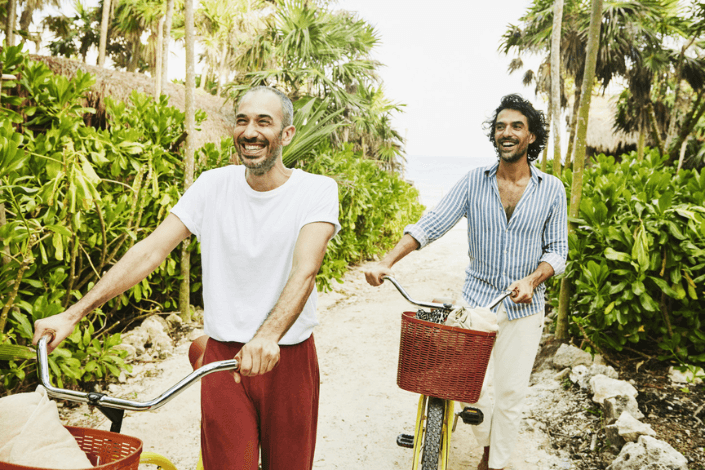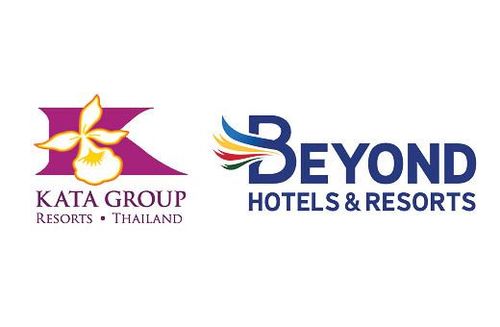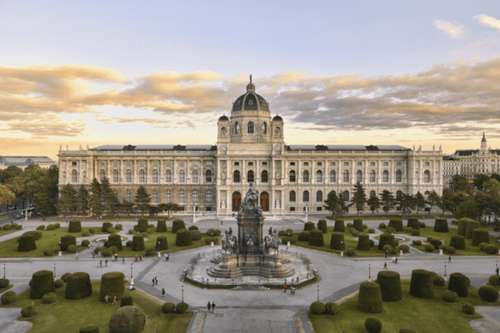Where travel agents earn, learn and save!
News / Booking.com research reveals how LGBTQ+ travelers are taking control of their trips
More than half of LGBTQ+ travelers experience discrimination

Building on its mission to make it easier for everyone to experience the world, Booking.com’s latest LGBTQ+ travel research reveals that travelers continue to face significant challenges. More than half (59%) of LGBTQ+ travelers have experienced discrimination when traveling, rising to 63% of those who are currently out**, 64% of those who have a partner and 68% of those who consider themselves an advocate for LGBTQ+ rights and change***. LGBTQ+ travelers expect some form of discriminatory behavior from both their fellow travelers (55%) and locals at their chosen destinations (57%). In parallel, 51% agree that being LGBTQ+ has made them more insecure and self-conscious as a traveler. This is of even greater concern for those who identify as transgender (64%), intersex (57%) and non-binary (56%).
Despite this, LGBTQ+ travelers are taking ownership of their lived reality. From thoughtful destination decision-making to pre-booking plane seats and creating alter egos, LGBTQ+ travelers are taking control of their trips more than ever before to safely navigate different challenges and to find the best experiences.
Destination deliberations
Likely reflective of the current economic uncertainties affecting people in many parts of the world, accommodation that fits their budget is the primary concern for two in three (66%) of LGBTQ+ travelers. After those primary financial considerations, more than three in five (63%) believe that being able to be their authentic self on their trip is their next most important factor. Among all LGBTQ+ travelers:
- 55% consider a destination’s local legislation regarding LGBTQ+ human, equality and marriage rights an important factor.
- 51% consider whether the destination is more, or less accepting of LGBTQ+ people than their home country.
- 50% consider what they have heard or read in the news about experiences for foreign LGBTQ+ travelers.
These concerns have had a clear influence on LGBTQ+ travelers’ perceptions and decision making, with 43% of respondents canceling a trip within the past year after seeing a destination being unsupportive of its LGBTQ+ residents. This is most common among LGBTQ+ parents (48%) compared with non-parents (40%), but even more so amongst transgender (59%) and intersex (56%) travelers. On the flip side, more than half (56%) of LGBTQ+ travelers have booked a trip in the past 12 months to a destination seen as supportive of residents who identify as LGBTQ+, with millennials most likely to be inspired to travel there (62%) and the silent generation the least (21%).
When presented with the choice, over half (57%) say they prefer to visit destinations where LGBTQ+ tourism is already well established, compared with 43% who would rather consider locations where their presence could contribute to broadening social awareness and acceptance. The zeitgeist is also playing a part in decision making: nearly two-thirds (65%) of LGBTQ+ travelers say they are more likely to book travel experiences inspired by LGBTQ+ pop culture with millennials (70%) the most likely.
Pre-flight preparations
Once the destination has been decided, LGBTQ+ travelers are taking additional proactive steps to mitigate concerns about potential discrimination while flying. Nearly one in three (31%) have had a negative experience with a fellow flight passenger directly related to their identity, while 36% expressed apprehension at the idea of being seated next to a stranger in fear of their reaction or behavior towards them as an LGBTQ+ individual. The latter is most common among those who are transgender (57%), intersex (48%) or non-binary (44%). Consequently, 46% of LGBTQ+ travelers opt to select a specific seat in advance to minimize interaction with others for fear of discrimination, an action most commonly taken by those who are transgender (61%), intersex (55%) and non-binary (50%).
Code-switching and travel personas
LGBTQ+ travelers are actively adopting personas to protect themselves on their trips. Two fifths (40%) of LGBTQ+ travelers say that they modify aspects of their appearance and behavior to avoid potential discrimination or unwanted attention, while 41% have created an alter-ego to navigate different environments when traveling. This is most common with transgender travelers (59%), and lesbians (47%). The main reason for travelers in creating an alter-ego was to protect themselves and feel safe (43%), with one in three (35%) doing so to adapt to cultural sensitivities that may exist at a destination.
Travel industry allies
Beyond their own decisions, LGBTQ+ travelers recognize progress within the travel industry, with 73% saying increased inclusivity has made them feel more comfortable when traveling. This is most true among those who are out (76%) but also 65% of those who are not. Traveling to destinations that have adequate legislation in place facilitates feeling included and this is reflected in interactions with those that work in the travel industry: 83% of LGBTQ+ travelers feel comfortable when arriving to check in at their accommodation, 80% when having correspondence with accommodation hosts and airlines and 82% when interacting with hospitality professionals at their destination such as tour guides, flight attendants and taxi drivers. Additionally, when asked what features LGBTQ+ travelers would like to see from travel companies to improve their future travel experiences, 28% referenced filters that would facilitate identifying properties that offer a welcoming experience. This is of particular importance for transgender (49%) and genderfluid (40%) travelers.
Since launching in 2021, Booking.com’s Travel Proud program provides free inclusive hospitality training for accommodations to help them gain a better understanding of the specific challenges faced by LGBTQ+ travelers, as well as what can be done to make every guest feel more welcome, regardless of where they come from, who they love or how they identify. The training is available in English, Italian, French, Spanish, Brazilian Portuguese, Croatian, Japanese, Greek, Portuguese, Thai and German, with training sessions regularly available. There are now more than 67,000 Travel Proud-certified properties globally on Booking.com across 133 countries and territories and in 12,645 cities and destinations.
In addition to the company’s global partnership with IGLTA, the International LGBTQ+ Travel Association, Booking.com is now also exceptionally proud to be one of the newest partners of two organizations that help underscore Booking.com’s dedication to making the world more inclusive for everyone, everywhere:
- Global Equality Fund. This unique public-private partnership brings together like-minded governments and private sector entities dedicated to advancing and defending the human rights and freedoms of LGBTQ+ people around the world. Through the GEF, governments, companies and foundations work collaboratively with human rights defenders and civil society organizations working to protect and empower LGBTQ+ movements and people.
- Stonewall National Monument Visitor Center: Located in Greenwich Village in the heart of New York City, this landmark center, opening on June 28, 2024, preserves, advances and celebrates the legacy of the historic Stonewall Rebellion and serves as a living monument to the advocates and pioneers who came before us and educates on the events that shaped the LGBTQ+ civil rights movement.
Research commissioned by Booking.com and independently conducted among a sample of 11,469 LGBTQ+ travelers from 27 countries and territories including: Argentina (201), Australia (606), Belgium (201), Brazil (503), Canada (804), Colombia (302), Croatia (204), Denmark (200), France (1005), Germany (1005), Hong Kong (203), India (403), Israel (204), Italy (603), Japan (402), Mexico (300), Netherlands (504), New Zealand (202), Singapore (202), Spain (402), Sweden (203), Switzerland (200), Taiwan (200), Thailand (202), United Kingdom (1007), United States (1000), Vietnam (201). LGBTQ+ respondents self identified across demographics of sex, gender and sexual orientation. In order to participate in this survey, respondents also had to have traveled for leisure in the past 12 months. The survey was taken online in April & May 2024.
**As part of this research, we asked respondents if they consider themselves currently ‘out’ when it comes to their LGBTQ+ identity? By referring to being ‘out’, we mean revealing or no longer concealing their sexual orientation or gender identity.
***As part of this research, we asked respondents if they consider themselves “an active advocate for LGBTQ+ rights and change” in their community. By referring to an ‘active advocate’, we mean taking action, big or small, to support, champion and defend LGBTQ+ rights in their community.











